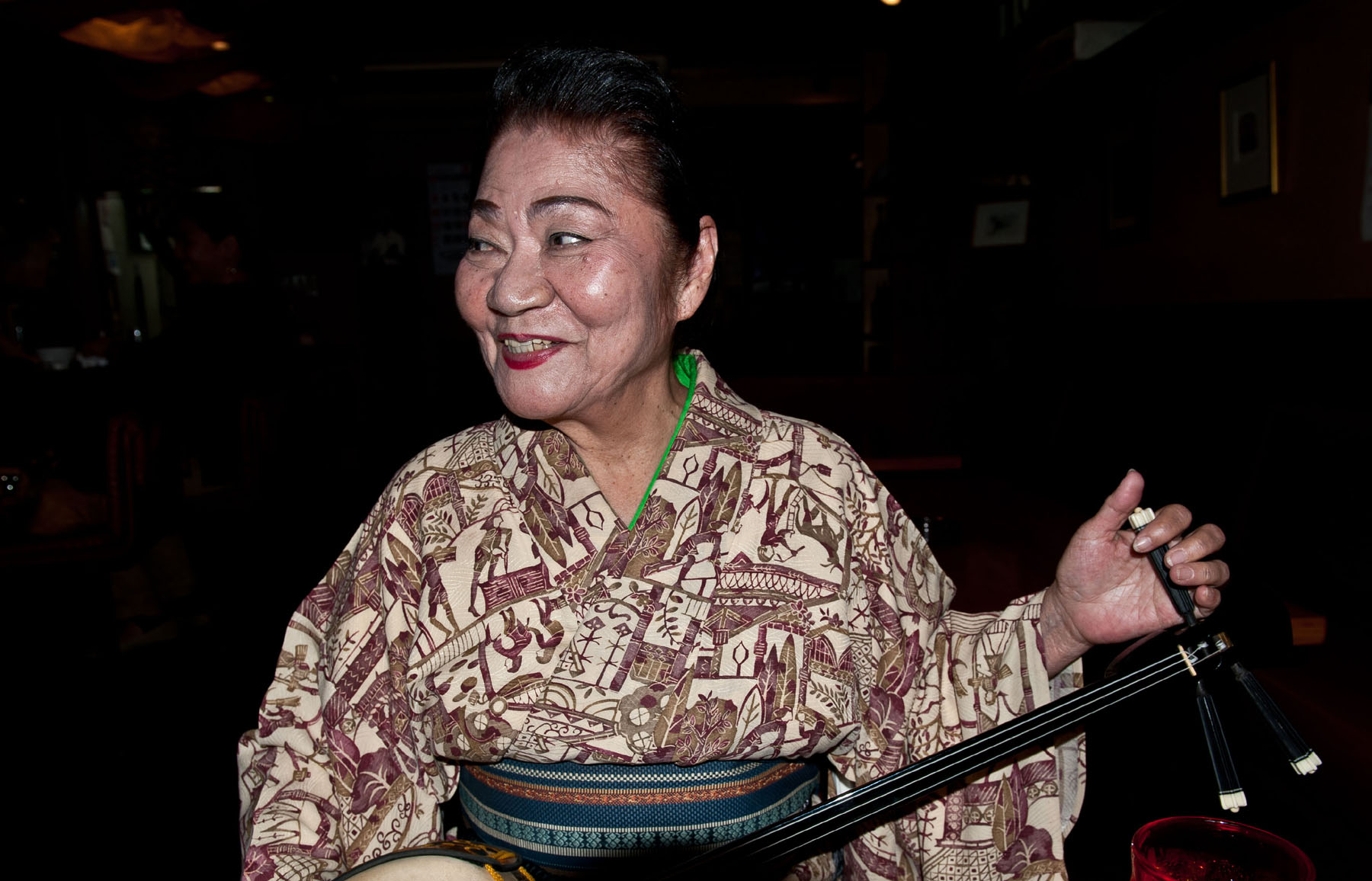The back streets of Naha were dark, making it more difficult to find Shima-Umui, a music club run by Okinawan folk singer Misako Oshiro. The torpid air and smell of papaya rinds from a nearby bin spoke of the subtropics. A small sign, barely visible from the street, directed customers to the basement venue.
It was clearly a quiet night at the club. A woman sat alone at the counter of the bar, nursing a glass of awamori, the signature liquor of these islands. The barman, wearing a loose Okinawan top, similar to the peasant smocks favored by Tolstoy, laid down the cloth he was using to dry glasses, walked to a small stage where a set of shima-daiko (Okinawan drums) and microphones stood, took down a stringed instrument from a rack, and began in a highly accomplished manner to play a set of Okinawan songs.
This doubling up of roles is quite common. At another club a few nights before, a venue owned by the great Okinawan musician and political activist Shokichi Kina, his sister, a regular member of his band and a gifted musician in her own right, was seen dispensing tickets for the evening's performance. It recalled a small family circus seen in rural France, where the young woman collecting admission tickets later appeared in the ring as a fire-eater.


















With your current subscription plan you can comment on stories. However, before writing your first comment, please create a display name in the Profile section of your subscriber account page.